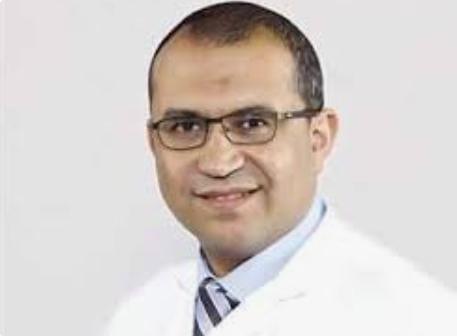Dr. Ahmed Mustafa Omaran
Consultant Cardiothoracic Surgeon
Academic and Training Qualifications:
🎓 Doctorate in Cardiothoracic Surgery from Ain Shams University.
🏅 Member of the Royal College of Surgeons - England (Royal College of Surgeons, England).
🎓 Egyptian Fellowship in Cardiothoracic Surgery.
🏛️ Vice Dean of the National Heart Institute in Egypt, reflecting his prominent role in the field of heart surgery in the country.
Medical Services Provided:
1. Diagnosis and Treatment of Heart Diseases:
❤️ Heart Diseases in Women:
Specializes in addressing heart issues that women face due to hormonal changes or other factors.
🫀 Cardiovascular Diseases:
Angina.
Coronary Artery Disease.
Heart Attacks.
💔 Heart Valve Diseases:
Diagnosis and treatment of diseases related to heart valves such as narrowing or leakage of the valves.
💓 Heart Rhythm Disorders:
Treatment of atrial fibrillation and arrhythmias.
2. Treatment of Arterial Diseases:
🫀 Coronary Artery Insufficiency:
Treatment for blockage or narrowing of the coronary arteries that supply the heart.
❤️ Coronary Artery Disease:
Diagnosis and treatment of cases suffering from arteriosclerosis or blockages in the coronary arteries.
💉 Valve Balloon Angioplasty:
In cases of valve narrowing, the valves are expanded using a catheter without the need for open surgery.
3. Diagnostic Procedures:
🩺 Electrocardiogram (ECG):
Normal ECG or during stress tests.
Use of a Holter monitor to track the heart's electrical activity for 24-48 hours.
🫣 Echocardiogram (Ultrasound of the Heart):
To measure and analyze the heart's movement and valves, detecting any structural issues.
💉 Coronary Angiography:
A procedure to examine the coronary arteries using a catheter to diagnose coronary artery problems, which can be performed with minimal invasiveness from the arm.
4. Complex Cases and Surgical Treatment:
💔 Heart Muscle Failure Treatment:
Includes treating cases where the heart's ability to pump blood is weakened.
🔪 Heart Surgeries:
Such as valve replacement surgeries or bypass surgeries (for blocked arteries).
👶 Pediatric Heart Surgery:
Specialized surgery for children with congenital heart defects.
5. Integrated Care and Monitoring:
🩺 Post-Stent Placement Follow-up:
Providing necessary care for patients after stent placement in coronary arteries.
🏥 Intensive Care:
Care for patients suffering from critical heart conditions or advanced cases requiring continuous monitoring and specialized attention.
6. Prevention and Follow-Up:
🔍 Early Detection of Heart and Artery Diseases:
Conducted using comprehensive tests to assess potential risks.
💉 Monitoring Blood Pressure and Cholesterol:
Continuous monitoring and treatment of high blood pressure, cholesterol, and lipid levels to prevent cardiovascular complications.
Catheter and Interventional Procedures:
💉 Coronary Angiography:
Used to examine coronary arteries and identify areas of blockage or narrowing.
💪 Arm-Based Angioplasty:
A more advanced and less invasive method for unblocking coronary arteries using a catheter inserted via the arm.
🫣 Valve Balloon Angioplasty:
Performed using a balloon to open narrowed valves without the need for traditional surgery.
Location and Address:
🏥 Clinic:
📍 45 Midan El Dokki, Farghaly Building, 3rd Floor, Dokki, Cairo.
For Appointments and Inquiries:
📞 Phone Numbers:
01100052391
01002412099

